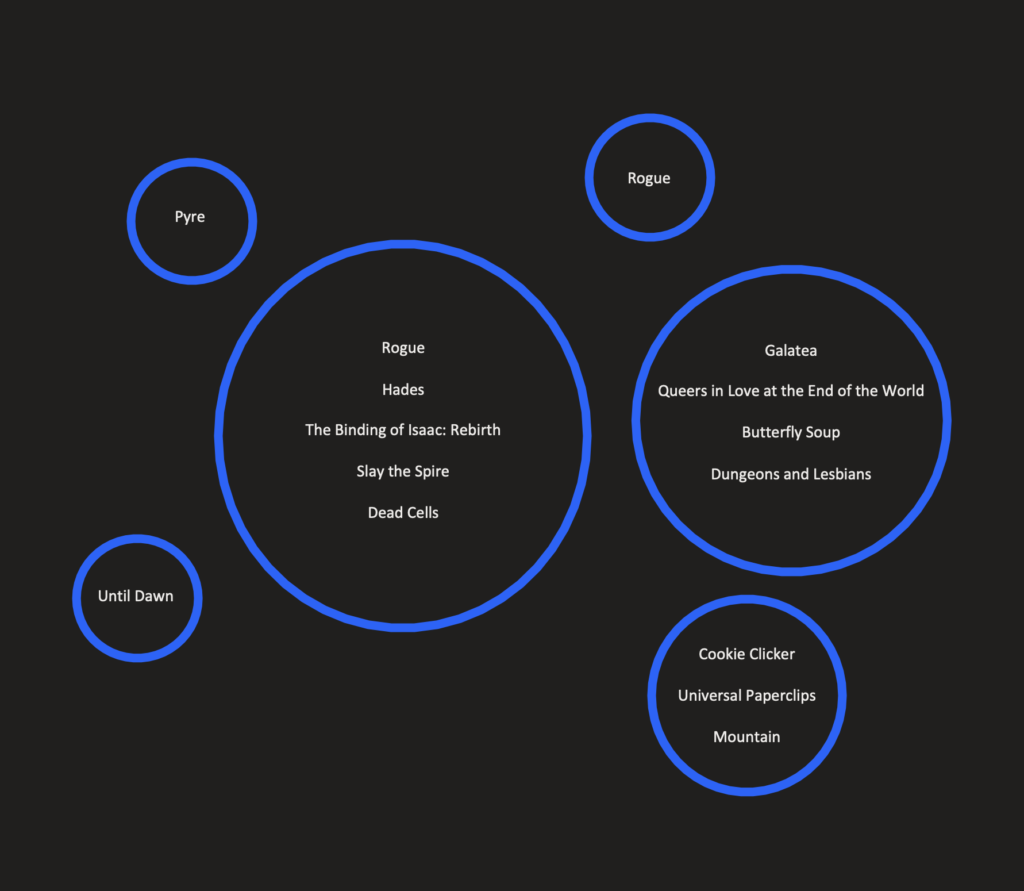Disclaimer: I have never taken a genre theory course, and I am certainly not up to date on the most recent arguments in the field.
I have been thinking a lot about game genres throughout the course of this class, and I found the discussion of genre “platypuses” incredibly interesting. A few other people have posted about the genre of Pyre, so I will not get into how I would classify the game (also because I am still not entirely sure myself), but I definitely agree with the sense that it is something of a blend of different genres that, as an inseparable whole, resists simple classification. When I was playing, and as we were discussing the game, I definitely got the feeling that it was something of a “platypus” (though I did not know this term yet), but I struggled to understand how someone would go about recreating this and what it should say about how one would categorize the game.
Does Pyre’s existence as a platypus mean that it demands the creation of a new genre, or is it enough to add a series of commas and continue to tack on categories (adventure, role-playing, sports, etc. game)?
When discussing the comparison between cultural and biological genre and taxonomy, I began to think about how one might go about establishing a system for classifying cultural genre that was vaguely scientific or even mathematical. I then thought about the genre of roguelikes, a genre that shares half of its name with a single game. Why is this not so with other games? Perhaps it is only when a game spawns a certain number of lookalikes or replicas that it defines a separate genre based on its unique qualities.
Or, consider that every game, as soon as it is published, defines its own genre so that every game belongs to at least one – its own. Then, if a game shares “enough” (“enough,” what a horrible word) qualities, be they mechanical, artistic, etc. with another, they combine to form a separate genre. According to this system, genres might thus be defined purely based on the mechanics, the art, the sound of the games that make them up, and there would be a nearly infinite number of genres – or at least up to the number of possible combinations of all existing games (and maybe even more, depending on how you group them). As this process continues, the most prominent of the genres are formed, and, rather than relying on a universal definition of “comedy” or “roguelike” to define them, they are instead defined by the shared qualities of the games that make them up. You could include too, works of other media in this space – so long as they have qualities in common with the games of a genre, they can be included in the category as well.

I am not really sure that this would be at all helpful to the classification of games, or cultural taxonomy more broadly, namely because it is functionally similar to the system currently in place (a relative “free-for-all” it seems), because arguments would still ensue, and because the language of the debates would not change all that much (our roguelike debate, for instance, would probably have transpired in a very similar way).
I am wondering too whether it is possible for a novel, a film, or a television series, to be considered a genre platypus. Is this something that is restricted to the medium of videogames or might a “dramedy” be considered such a combination? What is the distinction between a work that merely incorporates elements of different genres and a proper “platypus?” Is it simply that in a “platypus,” the elements of the different genres are inseparable but are not exactly featured together (e.g. in Pyre you have the adventure-like aspects of the game in which you roam around the map, and you have the sports-like aspects of the game that consist mainly in participation in the rites; neither of these can be removed from Pyre without changing the game, but they occupy different “spaces” in the game)?
Sources:
- Pyre. Mac OS version, Supergiant Games, 25 July 2019.
- barka. “platypus silhouette, vector illustration of platypus.” Shutterstock, https://www.shutterstock.com/image-vector/platypus-silhouette-vector-illustration-1607348266. Accessed 5 December 2021.


I really like the way in which you brought up the idea of “Roguelikes” once more, and playing Pyre has really led me to believe that there is indeed no way to make a game that is exactly like another, which lends itself to the uniqueness of games as a whole. While we spent a lot of time (in class and otherwise) debating what constitutes a “rogue-like”, I think that many, if not all, of the games we discussed are nowhere near what Rogue as a game was originally like. While, of course, this is due to the expansion of the genre, Rogue itself is its own game, and thus its own genre–as all games seem to be. So I’m almost wondering if there are more ways in which we could discuss “genre” as something that is almost detached from games and media as a whole, while keeping it within the realm of conversation as they are important yet at the same time almost feel reductive to the media themselves.